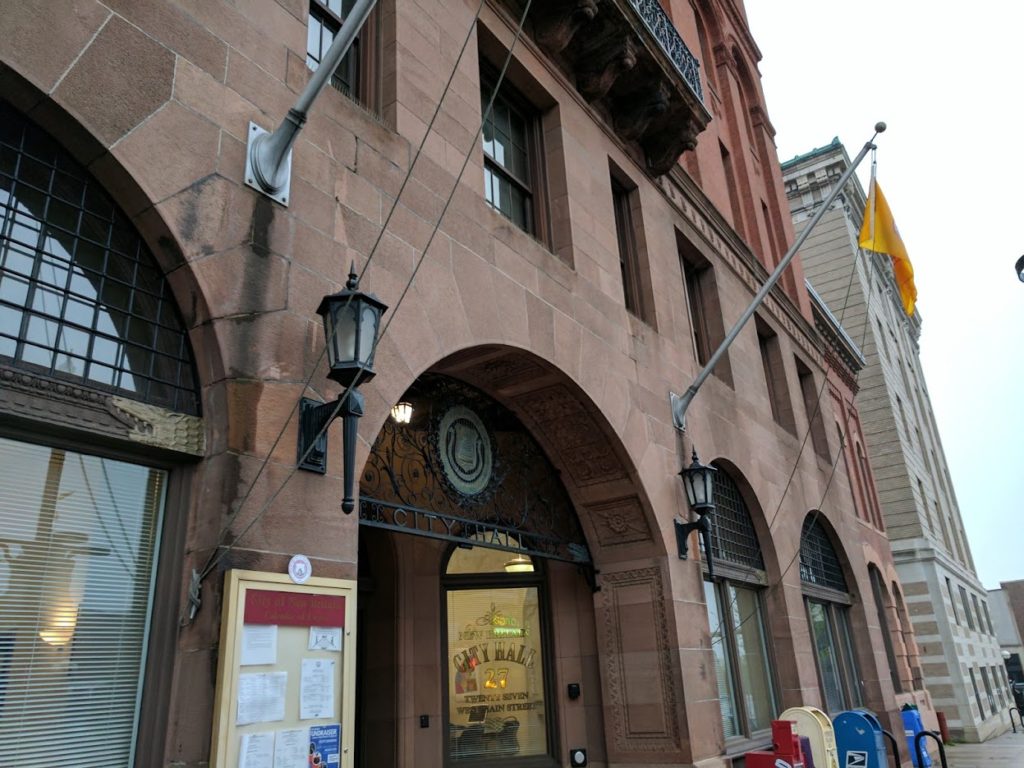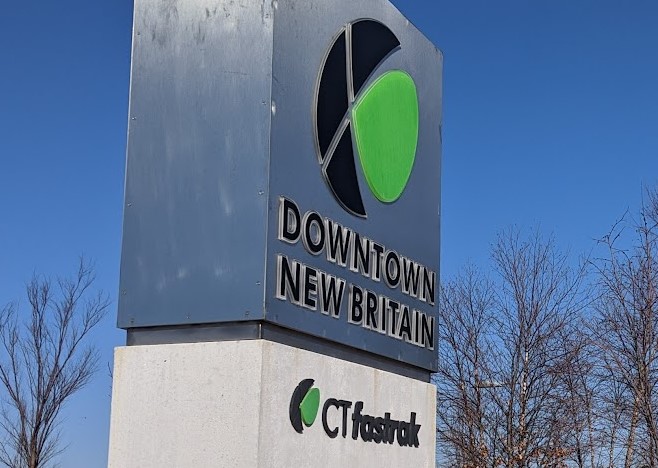Post-Pandemic Revaluation Brings Hikes Of 50% Or More To Single And Multi Family Homes
By John McNamara
New Britain’s turn for a revaluation of real property came this year in the regressive property tax system that mandates every city and town set new values for tax purposes every five years.
Unlike the last revaluation in 2017, economic upheavals caused by the COVID 19 pandemic, home sales and supply chain inflation have produced extraordinarily high jumps in property values wherever reappraisals are occurring.
Property Revaluation
The higher values are arriving in mailboxes like a lump of coal under the Christmas tree. “It couldn’t come at a worse time,” observed Mayor Erin Stewart saying the new valuations are “completely unavoidable.”
With assessment hikes averaging more than 50% on single family homes and condos and as much as 80% on three-family houses, according to the revaluation results, the budget process for the next fiscal year will focus on lowering the current 49.5 mill rate as much as possible to offset higher home values.
In several social media posts and announcements Mayor Erin Stewart and the Assessor’s office have shared information on the revaluation process conducted over the last year by Municipal Valuation Services (MINIVAL), the Fairfield-based firm contracted by the city to complete the mass appraisal of 17,000 parcels, including 9,070 single family homes. Officials are cautioning taxpayers not to use the current 49.5 mill rate to calculate their tax bills next year in their media campaign with a new mill rate to be set at the end of the budget process.
In a social media video with Assistant Assessor Tim Hutvagner, Stewart predicted that a mill rate cut will happen “similar” to 2007 when higher assessments reduced the mill rate from 45.39 to 34.98.
The high assessments, however, will be in effect for five years through 2027 and the tax burden on homeowners and tenants almost always increases over time. That shift in burden is likely to be more pronounced this time since commercial and business property assessments may be lower because of COVID shutdowns in 2020 and 2021.
Though rarely sought local governments can temporarily avoid revaluations without losing state aid by going to the state Legislature. Several cities, including Danbury, Orange, Stamford and Wilton, where revaluations were due this year avoided the inevitable through passage of a special enabling law in the 2022 General Assembly session. Betting that home values will come down to earth, these communities will wait until October 2023 before implementing new assessments after requesting the legislation.
In deferring revaluation in Stamford, Mayor David Martin who list his bid for re-election in 2021 cited the impact of the pandemic on rising residential values as commercial and retail property declined in asking for an exemption. “Our residents’ taxes should not be determined by unusual highs and lows of property values caused by the pandemic. I am concerned that our residential neighborhoods will be impacted with much higher property taxes because of a short-term increase in home prices,” Martin stated in requesting the enabling legislation last fall. “I believe by holding off the re-assessment for one year, we will see a leveling off of price fluctuations in the market and get a more accurate and fair assessment of property values until the next 5-year re-assessment cycle.”
Property taxes are levied based on 70% of value. At the current mill rate of 49.5, for example, a home assessed at $200,000 full value will be taxed at $140,000 (70%) for a tax bill of $6,930 or one mill for every $1,000 in taxes.
Property owners are getting a first crack at appealing their assessments informally by directly contacting MUNIVAL in December. In the new year the reassessments can be appealed formally to the Board of Assessment Appeals when taxpayers appear at hearings in March. February 17th is the deadline to get a hearing before the three-member panel that is elected every two years. Appeal forms will be available the first of the year.
New Britain Property Revaluation: The Appeals Process
- New property assessments take effect October 1, 2022 and taxpayers were notified in November
- Informal appeals of values as determined by MUNIVAL may be made within 10 days of November notices.
- February 17th is the deadline to appeal property assessments to the Board of Assessment Appeals.
- The Board of Assessment Appeals will hold hearings in March by appointment.
- Last-resort challenges must go to the Superior Court.
More information on the Appeals process is available at https://www.newbritainct.gov/services/assessor/appealshtm
Besides the talk inside the Stewart administration of reducing the tax rate by 10 or more mills, the Mayor and Council could also consider other steps in the municipal budget to bring more tax relief to limited or fixed income individuals or families. Current income limits for elderly tax relief, for example, could be raised beyond the current $49,100 for married individuals and $40,000 for single individuals or widowers that state law allows. Similar proposals to expand tax relief, however, have been repeatedly rejected by the Stewart administration in prior municipal budgets and her super majority on the Common Council generally rubber stamps her decisions. At the state level the Legislature is expected to take up proposals supported by New Britain lawmakers when it convenes in January to reduce reliance on property taxes and to continue to maintain or increase local aid that in New Britain exceeds $100 million this year. Property tax reforms to shift burdens away from home owners, however, have been few and far between at the State Capitol.

The process of setting the mill rate begins in the first quarter of 2023 when the Board of Finance and Taxation will go to work reviewing proposed expenditures for municipal services and the schools. Last year the $242,000,000 budget triggered the unchanged 49.5 mill rate with property taxes accounting for 55 percent of the revenue to run the city. The Mayor will put the proposed budget on the table in the spring with estimates that will need to take into account inflation, debt service, new hiring, pension costs and higher insurance rates. In June. the Council will finalize a budget and mill rate for the 2023 fiscal year.
Meanwhile the only certainty before the New Year is that the Board of Assessment Appeal is in for jam-packed nights of hearings in March from hundreds of residents who will make the case for reducing their property assessments.
(The writer is a former Chairperson of the Board of Assessment Appeal)




